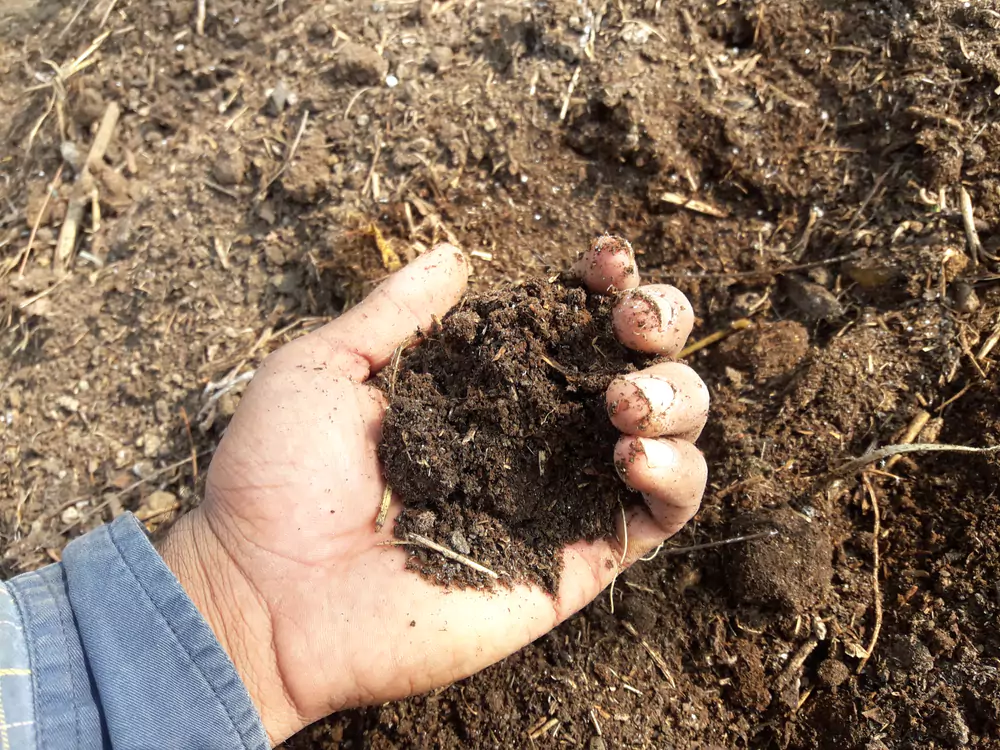How To Earn Money From Manure Management?

Are you a farmer looking for ways to increase your income? One solution could be right under your nose (or your cows’ hooves, to be more specific): manure management.
Manure is often seen as a waste product, but it can actually be a valuable resource with various money-making opportunities. In this article, we’ll explore different ways to earn money from manure management. From composting manure for fertilizer production to selling biogas to the grid, we’ll cover the benefits, equipment, and infrastructure needed to maximize your profits while also minimizing your environmental impact.
So, let’s dive in and discover how you can turn cow pies into cash!
The Value of Manure as a Resource
Did you know that manure can be a valuable commodity with a growing market trend? Many farmers and gardeners are realizing the benefits of using manure as a resource instead of treating it as waste.
Not only can manure provide nutrients for plants, but it can also be used for energy production, animal bedding, and even as a source of revenue. The manure market trends are showing an increase in demand for organic and sustainable products, and manure fits the bill.
Farmers and gardeners are seeking out natural alternatives to synthetic fertilizers and soil amendments, and manure provides an excellent option. Additionally, the demand for renewable energy sources is on the rise, and manure can be used as a source of biogas through anaerobic digestion.
By recognizing the value of manure as a resource, you can not only improve your own farm or garden, but also potentially earn money through its use and sale.
Understanding the Composition of Manure
Let’s delve into what makes up manure and how it can be transformed into a valuable resource. Understanding manure composition is crucial in determining its potential uses.
Here are some key components to consider:
Nutrient analysis: Manure is rich in essential plant nutrients such as nitrogen, phosphorus, and potassium. The amount of these nutrients varies depending on the type of animal and their diet. Nutrient analysis can help farmers determine the best application rate for their crops.
Moisture content: The amount of water in manure can affect its handling and storage. Wet manure is heavier and more difficult to transport, while dry manure can be easier to handle but may need to be moistened before use as a fertilizer.
In addition to these factors, manure also contains organic matter, microorganisms, and potentially harmful pathogens. Proper handling and storage are essential to ensure the safety and effectiveness of manure as a resource.
By understanding the composition of manure, farmers can maximize its value and minimize its environmental impact.
Composting Manure for Fertilizer Production
You can turn your animal waste into a nutrient-rich fertilizer for your crops by composting it properly. Composting is the process of breaking down organic matter into a rich soil amendment that is full of beneficial microorganisms and nutrients.
Composting manure is an excellent way to manage animal waste and create a valuable product that can be sold or used on your own farm. There are various composting techniques to consider when composting manure.
One method involves piling the manure and regularly turning it to allow for proper aeration and decomposition. Another technique is to use a compost bin or tumbler to contain the manure and control the process.
Composting manure is not only beneficial for your crops but also for the environment, as it reduces greenhouse gas emissions and prevents nutrient runoff. With an increasing market demand for organic and sustainable farming practices, composted manure can be a profitable product to sell to other farmers or gardeners.
The Benefits of Using Manure-Based Fertilizers
Using manure-based fertilizers can be an eco-friendly and cost-effective way to improve soil quality and promote healthy plant growth. One of the main benefits of using manure-based fertilizers is that they contain a variety of nutrients that are necessary for plant growth, such as nitrogen, phosphorus, and potassium. These nutrients are released slowly over time, which means that plants can access them as they need them, rather than being overloaded with nutrients all at once.
However, there are also some drawbacks to using manure-based fertilizers. For example, they can have a strong odor that may be unpleasant for some people. Additionally, if not properly composted, manure-based fertilizers can contain harmful bacteria that may pose a risk to human health.
When comparing manure-based fertilizers to chemical alternatives, it’s important to consider not only the potential benefits and drawbacks, but also the overall impact on the environment. While chemical fertilizers may be more convenient to use, they can also have negative effects on soil quality and contribute to pollution of waterways.
Ultimately, the choice between manure-based fertilizers and chemical alternatives will depend on a variety of factors, including the specific needs of your crops and the resources available to you.
Drying and Packaging Manure for Sale
Drying and packaging manure for sale can be a practical solution for farmers seeking a sustainable and profitable way to dispose of their waste.
In this process, the manure is dried using different techniques, such as solar drying or mechanical drying. Once the manure has reached the necessary dryness, it is then packaged in bags or containers and sold to customers as an organic fertilizer.
Packaging techniques play a crucial role in the success of this business. The packaging must be durable enough to withstand transportation without tearing or breaking, and it must be visually appealing to attract potential customers. Additionally, the packaging must provide enough information about the product, such as its composition and recommended usage, to ensure the customer knows what they are purchasing.
With the right packaging and market viability, farmers can turn their waste into a profitable commodity.
Creating Biogas through Anaerobic Digestion
Now that you know how to dry and package manure, it’s time to delve into another method of earning money from manure management. Have you heard of anaerobic digestion?
This process involves breaking down organic waste, such as manure, in an oxygen-free environment to produce biogas. This biogas can then be used for various applications, such as generating electricity or producing heat.
There are many advantages to creating biogas through anaerobic digestion. Firstly, it reduces the amount of organic waste that would otherwise end up in landfills or open fields, which can result in environmental damage. Secondly, the biogas produced can be used as a renewable energy source, reducing reliance on non-renewable resources. Additionally, the leftover organic matter from the digestion process can be used as fertilizer, closing the loop on waste management.
Overall, investing in anaerobic digestion can provide a sustainable and profitable solution for managing manure.
The Science Behind Biogas Production
You’ll explore how anaerobic digestion works to produce biogas, a renewable energy source that reduces organic waste and closes the loop on sustainable waste management.
Biogas production is a natural process that occurs when bacteria break down organic matter in the absence of oxygen. This process results in the production of methane and carbon dioxide, which are the primary components of biogas.
The amount of biogas produced during anaerobic digestion varies depending on several factors, including the type and quantity of feedstock, temperature, pH, and retention time. These factors are known as biogas yield factors and can be optimized to increase biogas production.
Biogas applications are vast and include electricity production, heating, and transportation fuels, making it a valuable resource for sustainable energy production.
Generating Electricity and Heat from Biogas
You can generate both electricity and heat from biogas, which can be a cost-effective and sustainable solution for meeting energy needs. Biogas utilization involves capturing the methane gas produced during the anaerobic digestion of organic waste materials and converting it into usable energy. This process not only helps to reduce greenhouse gas emissions but also provides a renewable source of energy.
Here are three ways to generate electricity and heat from biogas:
Cogeneration: This involves using a cogeneration unit to produce both electricity and heat simultaneously. The electricity generated can be used to power homes and businesses, while the heat can be used for space heating or water heating.
Biogas upgrading: This process involves removing impurities from biogas to increase its methane content, which can then be used as a fuel for vehicles or injected into natural gas pipelines.
Gas turbines: Biogas can also be used as a fuel for gas turbines, which are used to generate electricity. Gas turbines are highly efficient and can be used in large-scale applications, such as power plants.
Overall, generating electricity and heat from biogas is a sustainable and cost-effective solution that can help to meet energy needs while reducing greenhouse gas emissions.
Selling Biogas to the Grid
Selling biogas to the grid is a viable option for those looking to monetize their biogas production. The biogas market has been growing steadily over the years, with more and more countries recognizing the potential of this renewable energy source. By selling your biogas to the grid, you’ll not only be helping to reduce carbon emissions, but also earning a steady stream of income.
To sell your biogas to the grid, you’ll need to first ensure that your biogas plant is properly maintained. This means regularly checking the system for leaks, ensuring that the pH levels are within the optimal range, and monitoring the temperature and pressure. You’ll also need to have a biogas upgrading system in place, which will remove impurities such as carbon dioxide and hydrogen sulfide, making the biogas suitable for injection into the natural gas grid.
By investing in biogas plant maintenance and upgrading, you’ll be able to ensure a consistent supply of high-quality biogas. This will help you to secure a reliable income stream from selling biogas to the grid.
Using Biogas to Power Your Farm
Now that you know how to sell biogas to the grid, let’s talk about how you can use this renewable energy source to power your own farm.
Biogas production is a sustainable practice that can help you save on energy costs while reducing your carbon footprint. By capturing the methane gas produced from decomposing organic matter, such as manure, you can generate electricity to power your farm’s equipment and facilities.
To use biogas as a source of energy, you’ll need a biogas digester. It’s a sealed container where the manure is stored and decomposes. As the manure breaks down, it releases methane gas, which is collected and used to power a generator.
This generator can then convert the methane gas into electricity that can be used to run your farm’s operations. By using biogas to power your farm, you can reduce your reliance on traditional fossil fuels and help lower your carbon emissions, making your farm more environmentally sustainable.
Equipment and Infrastructure for Manure Management
Let’s take a look at the necessary equipment and infrastructure for effectively managing organic waste on your farm. First and foremost, equipment selection plays a crucial role in efficient manure management. You need to invest in equipment that is appropriate for the scale of your operation and the type of manure you’re dealing with.
For example, a small-scale farm may only need a wheelbarrow and a shovel, while a larger operation may require a tractor-mounted spreader or a manure pump. It’s important to choose equipment that’s easy to operate and maintain, as this will save you time and money in the long run.
Maintenance tips are also important for efficient manure management. Regular cleaning of manure pits and storage areas is essential to prevent build-up and reduce the risk of environmental contamination. It’s also important to properly dispose of manure by spreading it on fields or using it for composting.
Additionally, cost-effective infrastructure solutions for small-scale manure management are available. For instance, a simple pit or lagoon can be used to store manure before it’s spread on fields. Alternatively, you can invest in a portable manure spreader that can be easily moved from one location to another.
By selecting the appropriate equipment and infrastructure, and properly maintaining them, you can effectively manage organic waste on your farm while also earning money from it.
Maximizing Profits while Minimizing Environmental Impact
By optimizing the utilization of organic waste and implementing environmentally conscious practices, you can achieve a profitable and sustainable operation in manure management.
One way to maximize profits is through marketing strategies that highlight the benefits of using organic fertilizers. You can promote the environmental advantages of using manure-based fertilizers, such as reduced chemical usage and improved soil health. Targeting niche markets, such as organic or sustainable food producers, can also increase sales and profitability.
In addition to marketing strategies, waste reduction techniques can also contribute to the profitability and sustainability of manure management. Implementing practices such as composting or anaerobic digestion can reduce the amount of waste generated, while also producing valuable byproducts such as compost or biogas. By reducing waste and utilizing byproducts, you can reduce disposal costs and potentially generate additional revenue streams.
Overall, by prioritizing environmentally conscious practices and optimizing waste utilization, you can achieve a profitable and sustainable manure management operation.
Conclusion
Congratulations! You now have a solid understanding of how to earn money from manure management.
By utilizing the various methods discussed, such as composting, drying and packaging, and selling biogas, you can turn what was once considered waste into a profitable resource.
Not only can you benefit financially, but you can also contribute to a more sustainable and environmentally friendly farming practice.
Remember, maximizing profits while minimizing environmental impact should always be your goal.
Invest in the necessary equipment and infrastructure to ensure efficient and effective manure management. By doing so, you can not only increase your profits but also contribute to a healthier planet.
So go ahead and put your newfound knowledge into practice, and enjoy the rewards of successful manure management!





